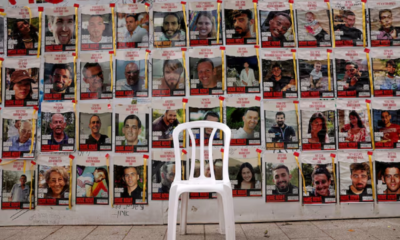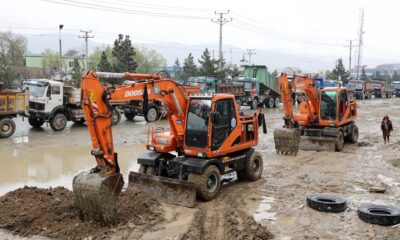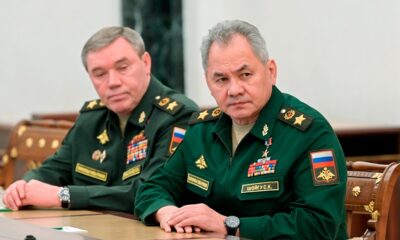Latest News
Watchdog says now is not the time for donor countries to cut back on funding
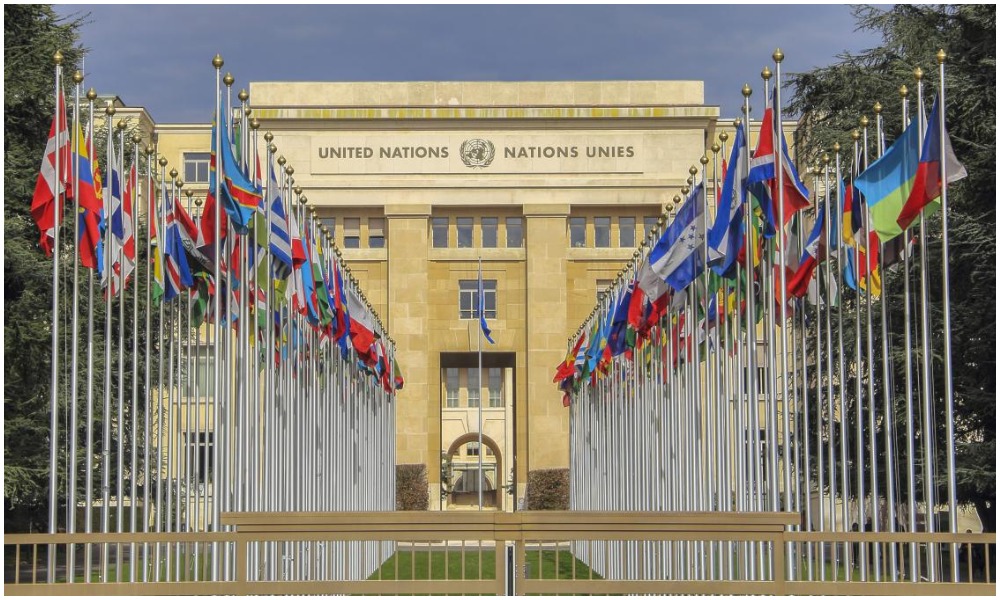
Amnesty International on Wednesday called on the international community to remain “fully committed to protecting and building” on Afghanistan’s fragile human rights gains and to not cut back on funding.
In a statement ahead of this month’s donor conference in Geneva, Amnesty International said Afghanistan is at a critical juncture and that now is not the time for donor countries to cut back on funding.
The Geneva Quadrennial Pledging Conference on Afghanistan, a major donor conference where countries will pledge funding for 2021 through to 2024 will take place on 23-24 November.
The conference will be attended by representatives of more than 70 countries, international organizations and agencies. The conference will also set development objectives as well as secure funding commitments for Afghanistan.
Omar Waraich, Head of South Asia at Amnesty International said: “Afghanistan is at a critical moment. Even as there is talk of peace, violence continues to surge, claiming hundreds of civilian lives, the protection of human rights is nowhere on the political agenda, and COVID-19 continues to run rampant in a country with one of the weakest health systems in the world,” he said.
“International funding has been crucial to the limited but important progress we have witnessed on human rights in Afghanistan over the past two decades, but much more remains to be done. To ensure that these advances are not reversed, the Geneva Conference must maintain a focus on human rights objectives.”
“For its part, the Afghan government must demonstrate its ongoing commitment to defending human rights, safeguarding freedom of expression, and protecting minority groups,” Waraich stated.
As such, Amnesty International has called on participants at the Geneva Conference to set objectives and commit funding to key areas including the rights of women and girls, conflict and civilian casualties, internally displaced people, human rights defenders, and access to justice.
The organization stated that the situation for women and girls in Afghanistan has vastly improved compared to under the Taliban regime. There are now 3.3 million girls in education and women are politically, economically and socially engaged. However, there remain major obstacles and challenges.
Violence against women is rife, the participation of women at all levels of government remains limited and, according to UNICEF, 2.2 million Afghan girls still do not attend school. Meanwhile, two decades of progress on women’s rights are at risk of being compromised through the peace talks.
“The Afghan government and donor partners must build on the hard-won gains made by Afghan women over the past two decades by making clear commitments to support programs to eradicate violence against women, strengthen women’s participation at all levels of government and increase girls’ access to education across the country,” said Waraich.
Conflict and civilian casualties was also a key area of concern and Amnesty International stated that the Geneva Conference is a key moment to reassert the central role that human rights must have in a future Afghanistan.
Waraich said: “Afghan civilians are paying a heavy price in this bloody conflict. The Geneva Conference participants must ensure that the protection of civilians and respect for international humanitarian law is at the centre of the ongoing peace negotiations.”
“The conference should also emphasize that there must be accountability for serious violations of human rights and humanitarian law committed by all sides in the conflict.”
The COVID-19 pandemic is yet another area of serious concern, especially regarding the high number of internally displaced people (IDPs) in Afghanistan – IDPs who are living in densely populated camps with limited access to clean water, healthcare, sanitation and employment.
As pointed out by the organization, social distancing is impossible in the camps and the situation of IDPs has worsened since the COVID-19 pandemic hit Afghanistan.
In line with this Amnesty International also called on participants at the Geneva Conference to set objectives and make funding commitments to alleviate the plight of IDPs, through the provision of safe habitation and equal access to basic services.
Human rights was also a key concern and according to the organization activists are still risking their lives by speaking out.
“The Geneva Conference must push the Afghan government to deliver on its pledge [to safeguard human rights] and make a funding commitment to help roll out the mechanism across the country,” Waraich.
On the issue of access to justice, the organization stated that despite millions of dollars having been spent on improving access to justice for people in Afghanistan, the judiciary and legal system remains weak and unresponsive and perpetrators frequently go unpunished and their crimes uninvestigated.
“The Geneva Conference is a key moment to reassert the central role that human rights must have in a future Afghanistan. To achieve this, it must commit to credible and measurable benchmarks to monitor human rights progress and, crucially, make clear to all parties to the peace talks that human rights are non-negotiable,” said Waraich.
Latest News
Three road construction projects launched in Kabul
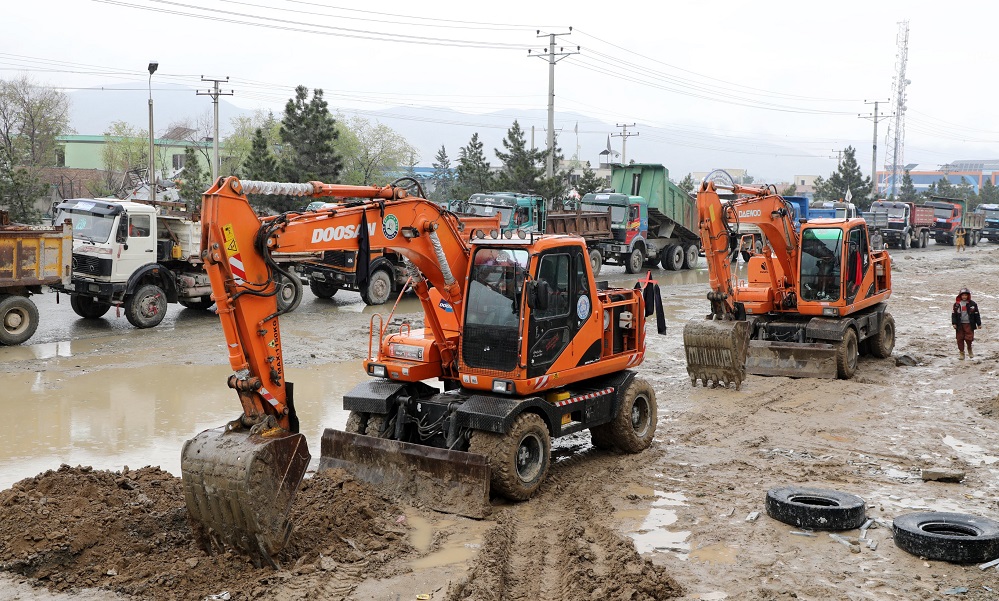
Three road construction projects worth about one billion Afghanis started in capital Kabul on Saturday.
The projects were inaugurated by Deputy Prime Minister for Economic Affairs Mullah Abdul Ghani Baradar.
The projects are: the second phase of Kotal Khairkhane road, the first part of the Shahid square to Qasaba, and the Airport road to Gumruk.
In the inauguration ceremony, Mullah Baradar said that Kabul municipality is working hard to beautify and regulate the city, and people should cooperate with the government in protecting public benefit projects.
He directed the officials of Kabul municipality to complete the mentioned projects on time and with good quality.
The second phase of Kotel Khairkhaneh road is 2.5 kilometers long and 60 meters wide. Thie road will cost 364 million Afghanis and will be completed in 20 months.
The Shahid square-Qasaba road is 1.8 kilometers long and 45 meters wide, which will be built at a cost of 175 million Afghanis in one year.
The Airport-Gumruk road is 2.7 km long and 60 meters wide, which will be completed at a cost of 407 million Afghanis in 20 months.
The projects are funded by Kabul Municipality.
Latest News
Russian defense minister says main threat for SCO countries emanates from Afghanistan
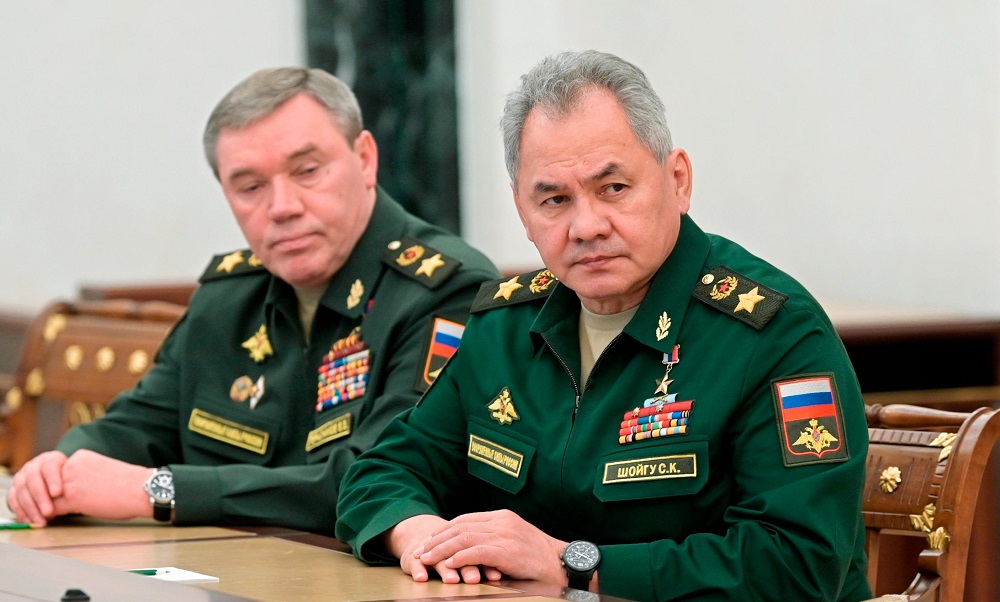
Russian Defense Minister Sergey Shoygu said on Friday that the main threat for the Shanghai Cooperation Organization (SCO) members emanates from Afghanistan where international terrorist groups find shelter due to unstable and indefinite political situation.
Speaking at a meeting of the SCO defense ministers in Kazakhstan’s capital Astana, Shoygu said Washington has stepped up efforts to restore its positions in Central and South Asia that were lost after the withdrawal of coalition troops from Afghanistan, Anadolu Agency reported.
The military chief called “unacceptable” the deployment of the American military infrastructure in the region, arguing that intentions should be regarded as “a direct threat to stability in the SCO space.”
According to him, the US is trying to impose a new security system in the Asia-Pacific region for dominance.
This comes as the Islamic Emirate has repeatedly emphasized that it does not allow anyone to pose threats to any other country from Afghanistan soil.
Recently, Mohammad Yaqub Mujahid, Acting Minister of National Defense Mohammad Yaqub Mujahid said that no destructive groups including Daesh have physical presence in Afghanistan,
Latest News
IEA calls Mujahideen Victory Day ‘freedom day’

In a statement on the occasion of the 32nd anniversary of the victory of the Mujahideen against the then communist government, the Islamic Emirate said that it is a day of freedom of the Afghan nation.
The Islamic Emirate described the coup by People’s Democratic Party of Afghanistan on 27th April 1978 as a dark day in history, as a result of which the people of Afghanistan suffered severe human and financial losses.
The statement said that the Afghan nation suffered huge casualties in their 14-year struggle against the thoughts and actions of the communists, as 1.5 million people died and millions more faced various hardships.
“After 20 years of Jihad, our country was freed from another occupation and the Islamic system was established, so the Islamic Emirate will make its utmost efforts so that the fruits of decades of sacrifice and struggle of this nation are not wasted,” the statement said.
“It was the wish of the martyrs to fully implement the Islamic system in the country, and therefore, the Islamic Emirate is trying to facilitate development and prosperity under the shadow of the Islamic system in order to realize the goals of the Afghan people’s jihads,” it added.
-

 Latest News4 days ago
Latest News4 days agoRashid Khan named AWCC’s brand ambassador
-

 World5 days ago
World5 days agoMalaysian navy helicopters collide in mid-air, 10 killed
-

 Sport4 days ago
Sport4 days agoJaiswal ton powers Rajasthan to big IPL win
-

 World4 days ago
World4 days agoNorth Korea officials visit Iran in a rare public trip
-

 Sport5 days ago
Sport5 days agoMawj Sahil player scores stunning halfway line goal in 1-0 win over Jawanan Wahedi
-

 Latest News5 days ago
Latest News5 days agoAt least 1,500 families affected by recent floods: IRW
-

 Sport3 days ago
Sport3 days ago‘Serious talent’ Fraser-McGurk bonds with Warner to light up IPL
-

 Latest News4 days ago
Latest News4 days agoUS report cites ‘significant deterioration’ in Afghan women’s rights last year




